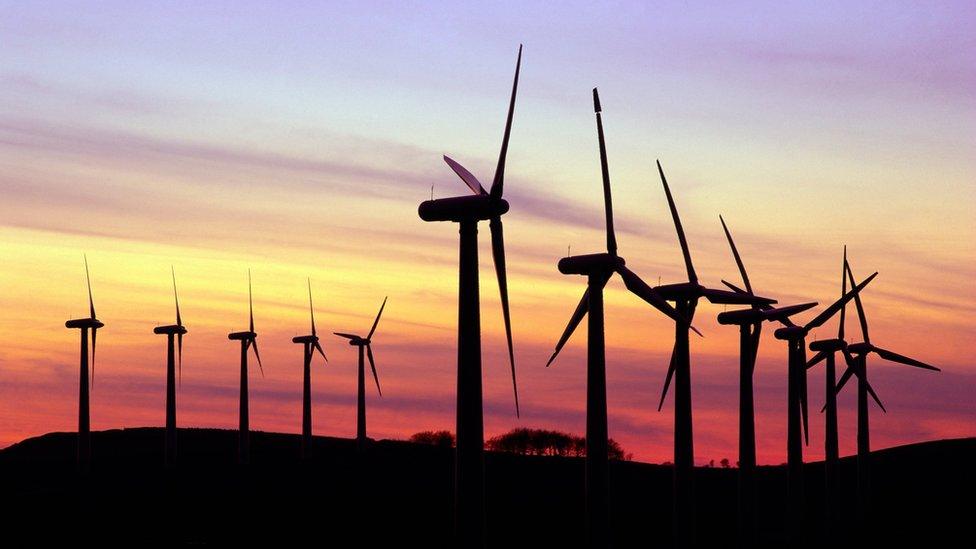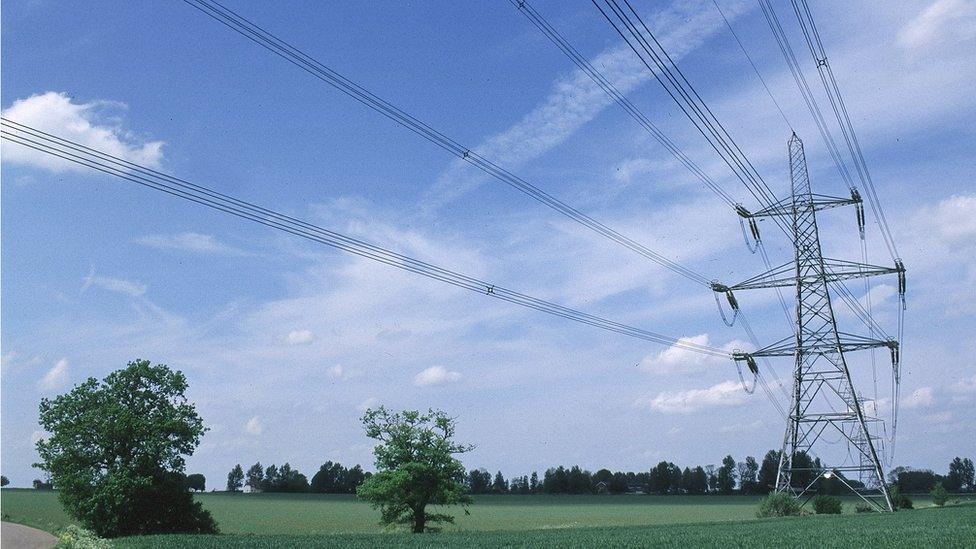UK and the EU: Energy and environment
- Published

Stats and facts
Gas and coal-fired power stations produce about half of the UK's electricity. Coal-fired plants are being phased out to meet clean air rules set by the EU - and to help hit the UK's own strict climate change targets.
The UK, like much of the world, is predicted to face major environmental challenges associated with climate change, including heavier bursts of rain, hotter temperatures, rising sea levels and threats to wildlife habitats.
Until recently, the EU led the world on climate change policy. It set the electricity sector on a course towards energy efficiency, nuclear and renewables.
National boundaries don't apply to greenhouse gases - or to migrating birds, pollutants of the air and sea, ozone-eating chemicals and fish. This is often used to justify pan-EU energy and environment legislation.
What does the EU do?
The EU is a major global force on energy and the environment. It has the world's biggest body of environmental law. It has cleaned up the air, rivers, and bathing beaches - at a cost to bill-payers. It has encouraged increased recycling and reduced landfill.
It has done this by setting common standards so industries in member states can't undercut each other by making goods in a way that pollutes Europe's shared environment.
In 2007, national leaders agreed the EU would tackle climate change with a plan for 2020. It included a mandatory 20% cut in greenhouse gases, generating a binding 20% of energy from renewables and a non-binding commitment to improve energy efficiency by 20%.

Since then total energy consumption has begun to fall - a little-known historic achievement. This is largely the result of EU standards for goods from cars to fridges and vacuum cleaners.
EU standards have forced industries to invest in processes and cut pollution, which has often given them a global clean-tech lead. The EU also helps shape the global market by demanding many imported goods meet EU environment standards.
But the EU's leading position has increased energy costs for businesses and consumers - in the short term at least. And this has been one of several factors in industrial job losses.
…and what doesn't it do?
The EU has set a broad framework, but member states choose their own energy mix. Germany, for instance, is scrapping nuclear and investing heavily in renewables; while the UK wants to resurrect nuclear.
Investment in renewables is likely to slow in the UK after recent subsidy cuts. The UK persuaded the EU not to extend binding national renewables targets after 2020.
UK opt-outs?
The UK was given a lower target of generating 15% of energy from renewables by 2020 because it was coming from a low base, but is still struggling to meet that.
The argument for leaving the EU
Eurosceptics say the UK could reduce energy prices by leaving the EU, although it's not clear how this can be done without repealing the UK's Climate Change Act, which the current government has said it won't do.
The argument for staying in the EU
As the UK attempts to meet its own commitments to tackle climate change, it will need more co-operation to get clean energy, not less. What's more, if the UK relaxed its pollution laws, it would probably be obliged to match EU environment standards to export to Europe anyway.